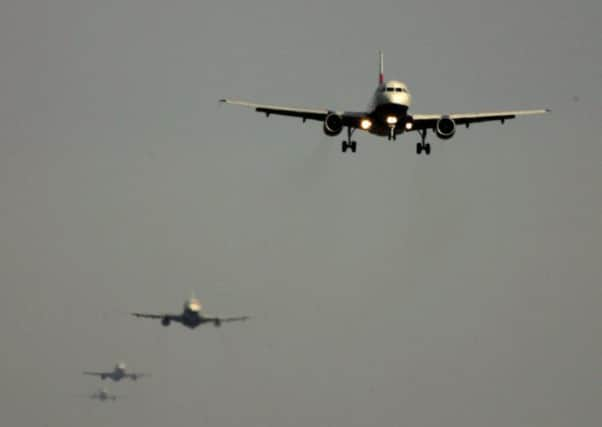Comment: Unloved APD | First pay revolt


It is blamed for adding substantially to the cost of a ticket, thereby deterring passengers from flying and weakening the commercial case for retaining some services.
British Airways has revealed that APD was a factor in its decision to cut the Aberdeen to London City route and is now urging MPs to do something about it, presumably as this may have implications for other routes.
Advertisement
Hide AdAdvertisement
Hide AdKeith Williams was reported in the Press & Journal saying that “air passenger duty has played a significant part in this route failing to reach commercial viability”.
APD’s supporters will argue that new flights are being launched in and out of Scotland. But at the margins, particularly on domestic routes, the tax can be a determining factor in their profitability.
The Scottish National Party has pledged to cut what it calls a “tourism tax” and eventually to abolish it because it is seen as a disincentive to some airlines considering routes to and from Scotland or for retaining those that exist.
Willie Walsh, chief executive of BA parent International Airlines Group, has already come out in favour of independence, seeing it as a benefit for this company in achieving such an aim. A particular gripe for opponents is that in spite of calls to cut the tax – and Treasury reviews into its future – the Westminster government has increased it.
APD was introduced in 1994 with a £5 rate for the UK/EU and £10 elsewhere. Since then, it has been increased a number of times, including a doubling for passengers travelling in any other class than economy.
The campaign against it includes the Association of British Travel Agents (ABTA), which welcomed the Chancellor’s Budget decision to streamline the banding, which is based on mileage. Scrapping two bands on long-haul flights will save individuals and businesses about £200 million a year.
ABTA insists this should be a first step to more effective reform. The Treasury has devolved APD to the Northern Ireland assembly and flirted with doing the same for Scotland and Wales. It would be no surprise to see such a move ahead of the independence referendum.
Until such time as Scotland benefits from a cut, it will be left to the SNP to make that promise its own. With BA on board, it at least has support in high places.
A strike for shareholder power at FirstGroup
Advertisement
Hide AdAdvertisement
Hide AdTHE pay issue reared its head again yesterday with FirstGroup chairman John McFarlane being forced into launching a review of the transport company’s remuneration policies.
It is a result of sorts for New York hedge fund Sandell Asset Management whose boss Tom Sandell has opposed a doubling of pay to First chief executive Tim O’Toole last year – a period that saw the firm launch a deeply-discounted rights issue to defend its credit rating. Sandell, a 3.1 per cent shareholder, was thought to have little support for its campaign. In the event, 25 per cent of shareholders voted against the pay policy at its annual meeting in Aberdeen yesterday.
The chairman’s concession to shareholders slightly undermines the company’s resolute opposition to Sandell’s preferred options, including a sale of its US assets. On the other hand, it is another minor victory for its owners.